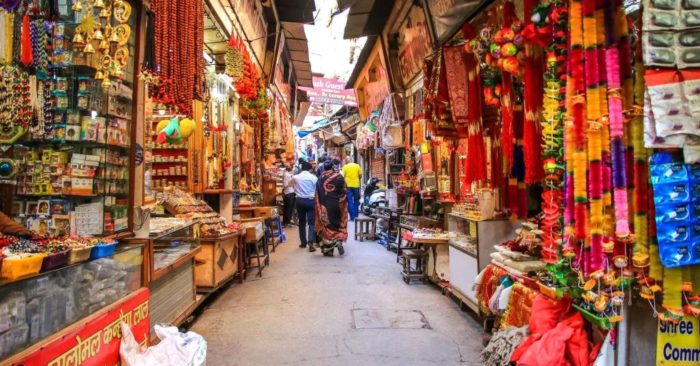

Indians hold a relatively low percentage of their total wealth in financial assets but that trend might be changing, according to a recent Credit Suisse survey.
The investment bank has released its latest version of a Emerging Consumer Survey that interviewed more than 14,000 respondents across eight emerging economies including India, China and Indonesia. The survey assesses the overall mood of consumers in those markets and looks at their spending patterns, savings behavior and brand preferences among others.
Those countries, the study said, had an aggregate population nearing 4 billion people and represented total consumption of $9.4 trillion.
“The distinguishing feature about India is that the wealth that exists, only 15 percent of it is in financial assets,” Richard Kersley, head of global equity research product at Credit Suisse, told CNBC Thursday at the bank’s Asian Investment Conference in Hong Kong.
He explained that in comparison, the Chinese put about 40 percent or more of their wealth in financial assets while in the U.S., it’s about 70 percent.
“A theme that we think is very interesting in India is that you are starting to see those holdings of financial assets increase, just as perhaps the other side of the coin is that the more typical default of investing in gold and jewelry and things such as that — that’s been coming down,” Kersley said.
Indeed, Indian respondents in the survey selected bank accounts as the most common method for saving their income. That was followed by life insurance, gold and property and finally stocks and mutual funds.
But according to the survey, the percentage of households that said they were saving through gold and property was 31 percent — its lowest level since the survey began in 2010.
At the same time, the likelihood of households investing in stocks and mutual funds is on the rise, from about 13 percent in 2010 to 19 percent in 2017.
In the next five years, the survey said India is expected to add $2.1 trillion to the stock of global wealth, behind China — which is predicted to add about $10 trillion over the same period.
Still, compared to other emerging market countries, more Indian consumers expected inflation to be higher — the survey said that was partly due to a spike in food inflation and also because of higher crude oil and commodity prices.
more recommended stories
 Fentanyl Seizures at Border Continue to Spike, Making San Diego a National Epicenter for Fentanyl Trafficking
Fentanyl Seizures at Border Continue to Spike, Making San Diego a National Epicenter for Fentanyl TraffickingFentanyl Seizures at Border Continue to.
 Utah Man Sentenced for Hate Crime Attack of Three Men
Utah Man Sentenced for Hate Crime Attack of Three MenTuesday, August 8, 2023 A.
 Green Energy Company Biden Hosted At White House Files For Bankruptcy
Green Energy Company Biden Hosted At White House Files For BankruptcyAug 7 (Reuters) – Electric-vehicle parts.
 Former ABC News Reporter Who “Debunked” Pizzagate Pleads Guilty of Possessing Child pδrn
Former ABC News Reporter Who “Debunked” Pizzagate Pleads Guilty of Possessing Child pδrnFriday, July 21, 2023 A former.
 Six Harvard Medical School and an Arkansas mortuary Charged With Trafficking In Stolen Human Remains
Six Harvard Medical School and an Arkansas mortuary Charged With Trafficking In Stolen Human RemainsSCRANTON – The United States.
 Over 300 People Facing Federal Charges For Crimes Committed During Nationwide Demonstrations
Over 300 People Facing Federal Charges For Crimes Committed During Nationwide DemonstrationsThe Department of Justice announced that.
